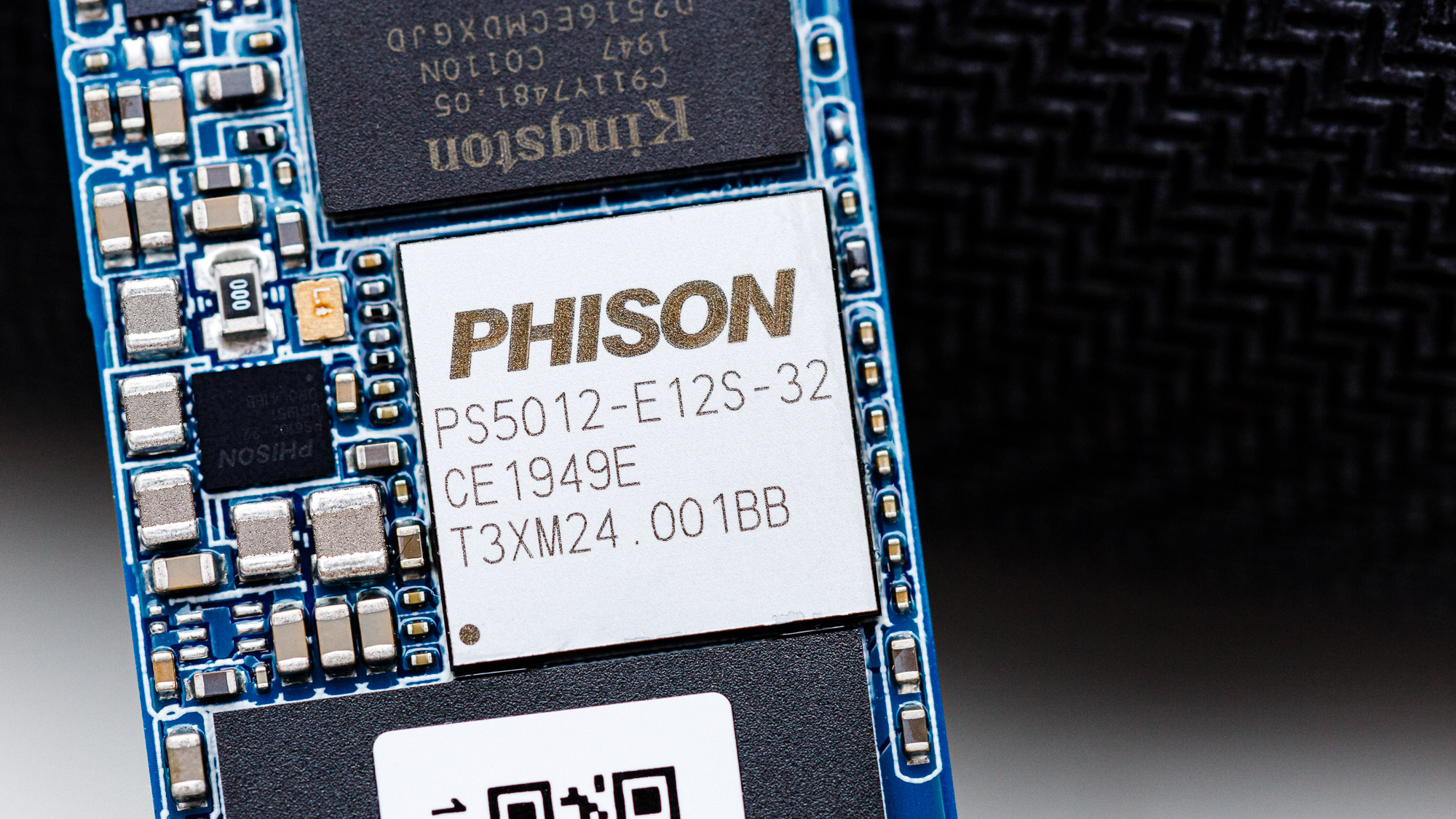Why you can trust Tom's Hardware
Team Group’s T-Force Cardea Zero Z340 is a mainstream NVMe SSDs that offers a good bang-for-your buck upgrade to those or a good option for those planning their next PC. It’s a responsive SSD that not only offers up multi-gigabyte performance, it is rated for some killer write endurance over its five-year warranty period. Plus, it comes with a slick graphene and copper label to handle the workloads without overheating, even without airflow in our testing. And, if you do want to use a heatsink with your M.2, the label won’t prevent it like the heatsinks on some SSDs out there like Patriot’s Viper series.
In our testing we found the performance out of the Phison E12S and Micron 96L combo worked out fairly well. Notably, the drive delivers faster performance than the older hardware powering Seagate FireCuda 510, and is more efficient, too. But it isn’t the best of the best.
While we have seen the E12S with a large dynamic SLC cache that spans a quarter of available capacity when paired with Micron’s 4-bit QLC like on Sabrent’s Rocket Q, the Cardea Zero Z340 leverages only a small dynamic cache that spans 28GB with its Micron 3-bit TLC. Without the larger SLC cache capacity of something like the Kingston KC2500 to absorb write requests quickly, performance suffered in large file folder copying and heavy writing applications.
But, while the cache is small, that fact helps it to recover quite quickly and maintain consistent performance over the long run. And, while large transfers aren’t as fast as say something like the company’s PCIe 4.0 x4 Z440, which is nearly identical to the Seagate FireCuda 520, the Cardea Zero Z340 still handles most enthusiast and prosumer workloads thrown its way.
For those looking for the best performance, stretching your budget an extra $40 to include Samsung’s 970 EVO Plus may help to save you some time in your day to day workflow if you are a heavy writer, but for most it’s overkill. If you are looking to save a few bucks, WD’s Blue SN550 makes for some competition at its lower pricing.But for the same price, Adata’s XPG SX8200 Pro with Silicon Motion’s SM2262EN NVMe SSD controller powering it is even tougher competition to the Cardea. Even with Micron’s older 64L NAND flash, it typically outperformed the Phison E12S-based Cardea Zero Z340 with newer 96L flash. But, while the SX8200 Pro comes with a heat spreader and five-year warranty, it doesn’t come with the endurance ratings Team Group backs the Cardea Zero Z340 with.
MORE: Best SSDs
MORE: How We Test HDDs And SSDs
Get Tom's Hardware's best news and in-depth reviews, straight to your inbox.
MORE: All SSD Content

Sean is a Contributing Editor at Tom’s Hardware US, covering storage hardware.
-
spentshells With no loyalty to brands, I am glad to see team group getting more widely supported. Quality products and very reasonable pricing.Reply -
oGudNite One of the first manufacturers to go against the gain and switch things up a bit... spell correction had fun againReply -
Takx Hey There, did you guys test this SSD with linux?Reply
I'm trying it on Ubuntu 20.04, and the write speed is super slow (1100 MB/s using XFS tried with Disks application on Ubuntu and FIO), on Windows (NTFS) it reached 3000 MB/s like advertised.
I don't know if this is a kernel issue or what, someone has any advice?
